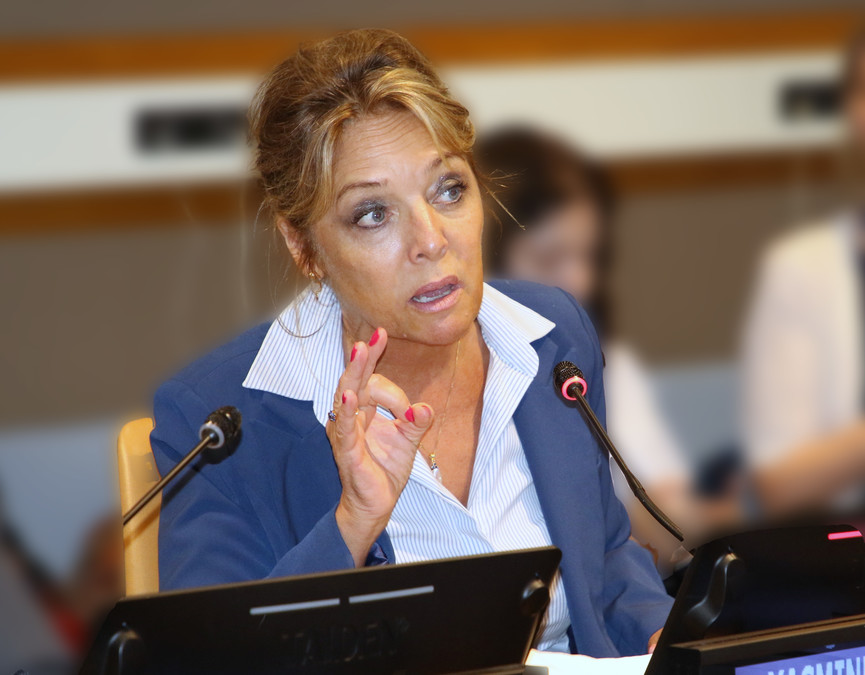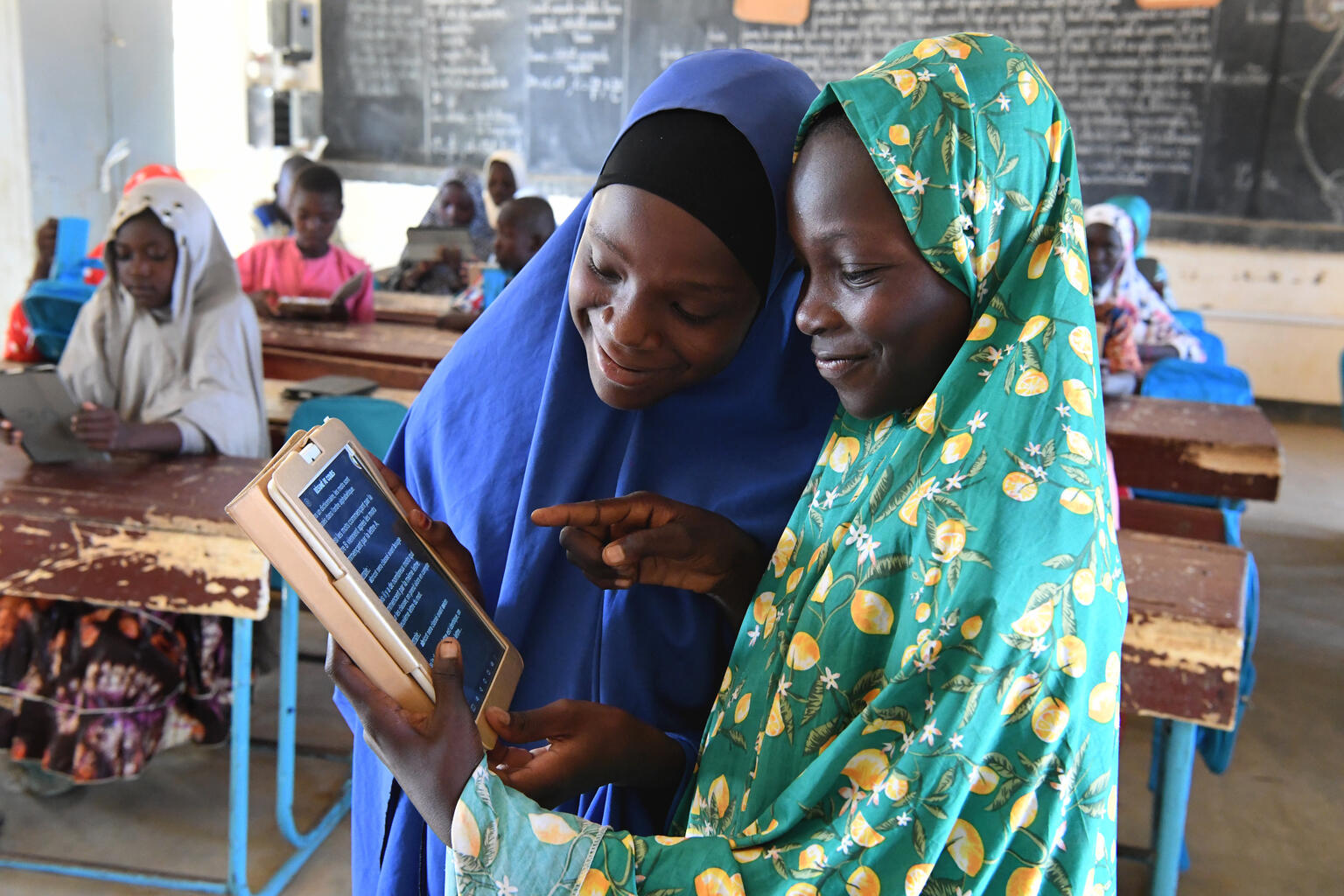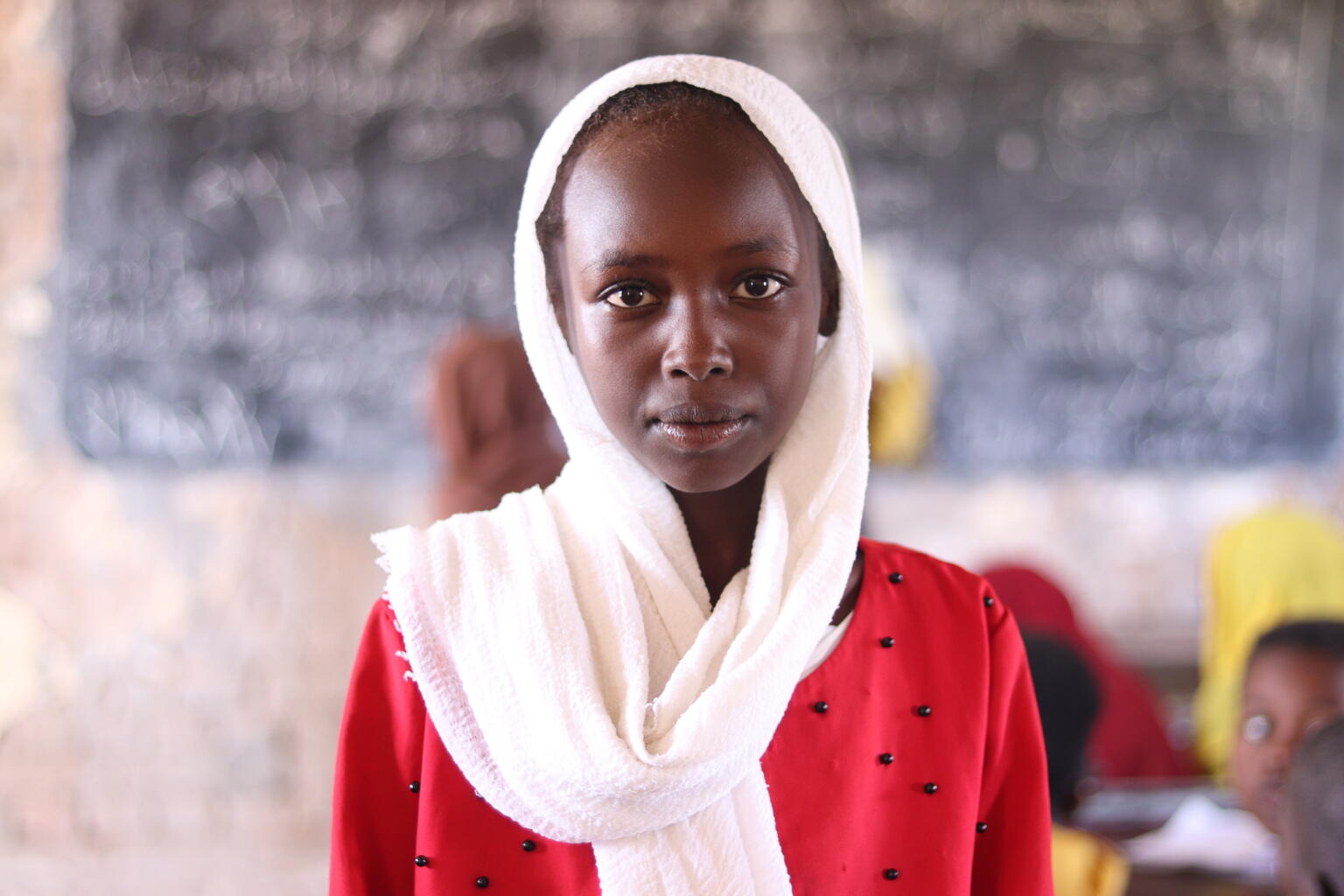Make a Mark

Looking back on the past year and taking stock of opportunities this year, we have a chance to make a mark together. By connecting dots, seizing opportunities and overcoming challenges, we can move forward, deepen, expand and solidify. Just like thousands of generations before us.
The advent of the written word took place 3200 BC, making an indelible mark on humanity that brought us to where we are today in knowledge and learning. The foundation of the Greek and Roman empires and their impact on philosophy, political thinking and governance were significant marks that impact us all. In the same vein, great social movements providing women their right to vote and to end slavery made a moral mark changing the course of history, as did the establishment of the United Nations.
We sit on the precipice of opportunities in the education sector, not the least for those children and adolescents left furthest behind in emergencies and protracted crises. We now have an opportunity to build on advancements made so far - and in just a few years’ time, we will have made our mark to ensure education for all, and through that, deliver on the Sustainable Development Goals.
While contemporary challenges include post-COVID-19, climate change and armed conflicts, there is no period in history that was not plagued by challenges - yet opportunities were seized to turn them around and make a mark. Despite obstacles, we can still see and seize new opportunities to overcome them.
Take the UN Secretary-General’s Transformative Education Summit in September 2022 which was attended by over 2,000 people from across the world and articulated a bold vision for an urgent, political imperative for education as part of our collective future. The Summit laid the ground for ECW’s High-Level Financing Conference (HLFC) in February 2023, attended in person by over 700 people, with a further 3,000 joining online. The HLFC made its mark by highlighting that we will only achieve the Sustainable Development goals by starting with those left furthest behind, including children and adolescents caught up in conflicts and crises around the world.
These pivotal forums in turn are feeding into the Global Refugee Forum later this year where the plight of the world’s more than 100 million refugees will take center stage once again and reiterate their calls for action to make a mark.
Meanwhile, parliamentarians from across the world have united to urge the G7 under the leadership of Japan to commit to protecting, prioritizing and increasing official development assistance to education, building on recent G7 summits hosted by Canada and France. On GPE’s and ECW’s joint mission in early March to Tokyo we were inspired to see the government, civil society and other strategic partners positively responding to this call to action.
Furthermore, in the last week of March, I witnessed once again the mark we can make through education for the world’s most marginalized girls and boys during my mission to Colombia. This is the single largest forced displacement ever in the history of South America with over seven million refugees and migrants having left Venezuela since 2014. They’ve gone for months and years without schooling. Thanks to ECW’s investments - totaling over US$16 million to date in joint programming across the humanitarian-development-peace nexus implemented by the Ministry of Education, United Nations and Civil Society Organizations – more than 60,000 girls and boys are now back in school through both non-informal learning and participation in public schooling in Colombia.
The inspiring stories of resilience, empowerment and hope by girls and boys like Isabella, Yermino and Junior are testimonies to how seizing and investing in opportunities at global levels indeed generate opportunities at local levels.
Together, we are doing the same for girls in Afghanistan, and across the Sahel, Bangladesh, Syria, sub-Saharan Africa, the Middle East, Ukraine and Moldova. So many more ECW financial investments could be made - and need to be made - to make our collective mark and reach all 222 million crisis-affected children and adolescents. To do so, we need action. As part of our contribution to reach millions more of these learners, we jointly need to mobilize at least another $670 million over the next four years.
We have the momentum. This month, we feature a high-level interview with H.E. Mr. Khalifa bin Jassim Al-Kuwari, Director General of the Qatar Fund for Development, which recently joined ECW, starting with a generous contribution of US$20 million. The interview indicates that building upon the initial success of ECW investments is the way to create sustainable development pathways toward the future.
We have an opportunity to become the first generation in history to ensure equitable, inclusive, quality education for 222 million children and adolescents in crises. We have an obligation to do so. This is our chance to make our mark and together create a tipping point: if we do so, they will also do so. With an education, they will carry the torch to the next generation, the next and the next …




